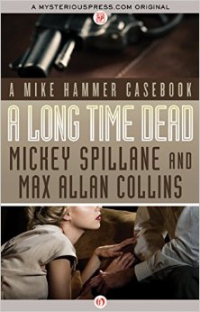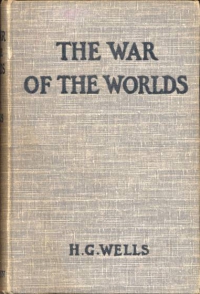The Paranoid Style in American Politics: An Essay by Richard Hofstadter
 Thursday, November 17, 2016 at 8:47AM
Thursday, November 17, 2016 at 8:47AM Tzer Island does not usually review essays, nor does it usually publish reviews on Thursdays. Having accepted the opporunity to read some essays published in the Vintage Short series, however, I've decided to review them this week and next on Tuesday and Thursay. Vintage Shorts are available in digital format for about a buck.

Published by Vintage on October 4, 2016
Richard Hofstadter’s essay was first delivered as a lecture in 1963. The lecture was revised and expanded into this 1965 essay. Hofstadter’s analysis is even more salient today.
Hofstadter uses “paranoid style” as a shorthand for “the qualities of heated exaggeration, suspiciousness, and conspiratorial fantasy.” He wrote those words long before “birthers” ignored the president’s birth certificate to claim he wasn’t an American, long before suggestions were made that Hillary Clinton conspired to murder Vince Foster, and long before wild claims surfaced that leftists assassinated Justice Scalia.
The paranoid style characterizes people who persist in believing, on the basis of no evidence, that a conspiracy is afoot to attack “a nation, a culture, a way of life.” They posture themselves as true patriots who justly respond to the conspirators with righteousness and moral indignation. Hofstadter uses the word “style” to emphasize that he is talking about the way ideas are advocated rather than the truth or falsity of their content, although he acknowledges that the paranoid style “has a better affinity for bad causes than good.”
Hofstadter traces examples of the paranoid style from the nation’s inception to the early 1960s. He gives special attention to conspiracy claims advanced against Masons and Catholics in earlier centuries before turning his attention to “the contemporary right wing” (remembering, again that “contemporary” means 1950s and early 1960s). As opposed to the earlier right wing, which felt it was defending values that were still common in America (such as racial supremacy), Hofstadter notes that the new right wing feels “dispossessed.” Their values were no longer at the core of American life, having been maliciously eroded (they believe) by intellectuals and urban dwellers. They see themselves as fighting a losing battle against foreign influences, define those who disagree with them as Communists, and see conspiracies everywhere. Indeed, anyone who disagrees with their paranoid view of America is by definition a traitor. Sounds familiar, doesn’t it? The enemy today is not so much Communism as the perceived threat of a “world government” that would oust the United States from its entitled position of leadership, but not much else needs to be changed to update Hofstadter’s analysis.
According to Hofstadter, a vast and sinister conspiracy to destroy the American way of life is at the heart of the paranoid style. Conspiracies are viewed in apocalyptic terms, as struggles of ultimate good versus ultimate evil. Alleged conspirators are attacked for their lack of morality (particularly as expressed by their sexual freedom and desires). The threat posed by conspirators can only be overcome by militant action that eliminates the threat and leads to unqualified victory (hence, the preference for tough talking, saber-rattling leaders and the lack of tolerance for any viewpoint with which they disagree). Anything less leaves them frustrated, which is why they are doomed always to feel frustrated, regardless of election outcomes. Opposing viewpoints are difficult to eradicate, they feel, because the enemy controls the media, has unlimited resources, and has taken over the educational system. They strive mightily to find evidence to support their paranoid thoughts and are prepared to believe anything that purports to stand as proof, no matter how unverified or fanciful, since only the unbelievable is worthy of belief. Or, if they meticulously gather facts, the facts have nothing to do with the judgments they make. Again, this sounds awfully familiar.
Hofstadter suggests that the paranoid style surfaces most prominently in times of ethnic or religious conflict. That observation is apt. Immigrants and Muslims have served to trigger paranoid thinking in current society. What Hofstadter wrote half a century ago is just as germane today, as witnessed by the election of Donald Trump, who fanned the flames of racial and religious hatred that feeds the paranoid style. Since they believe the enemy must be wiped out, people who adopt the paranoid style have no interest in electing leaders who will negotiate political solutions to the real problems that weaken the nation. The paranoid are not subject to reason, because they will not surrender their fantasies. Sadly, they think their wrong-headed votes will change things, when in fact nothing can relieve them of their paranoid delusions. Of course, if they elect enough candidates who share their paranoia, they might get what they want -- the utter destruction of those who disagree with them -- but at a considerable cost to the nation.
Of course, those who have adopted the paranoid style will dismiss Hofstadter's essay as enemy propaganda. For everyone else, regardless of their position on the political spectrum, this essay is essential to understand why progress in America is so often blocked by people who would rather shout (or shoot) than try to find common ground.
RECOMMENDED
Update (Nov 26, 2016): The essay is all the more timely in light of persuasive reports that conspiracy theorists were manipulated by fake news reports that caused them to believe untrue accusations against Hillary Clinton. Ironic, isn't it, that the Russian governmetn was largely responsible for those stories, thus allying themselves with right-wing voters who would, if not so gullible, be suspicious of "news" that originates from a government committed to undermining American democracy.



